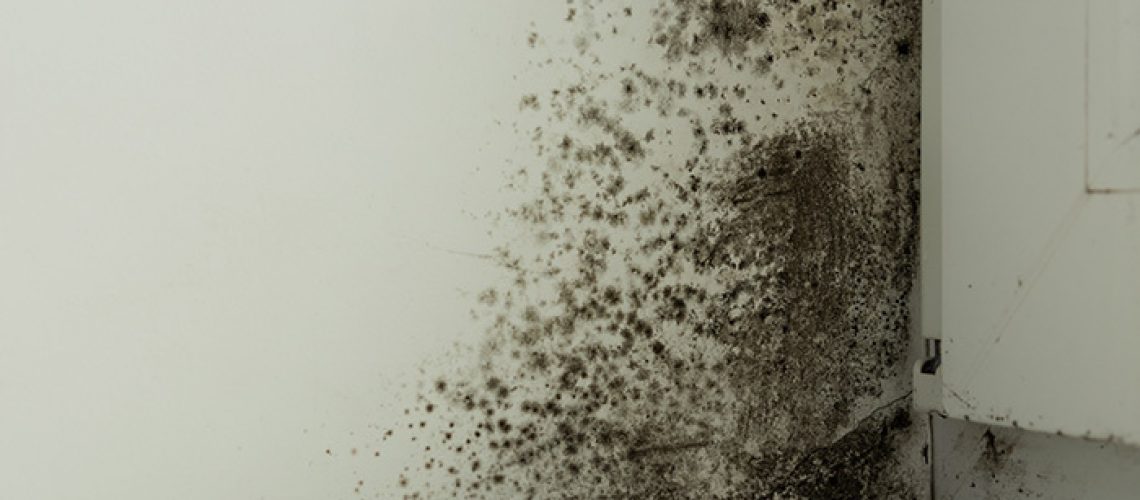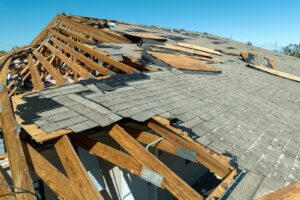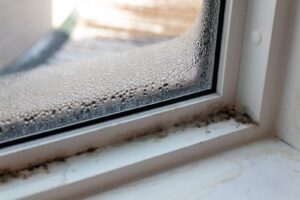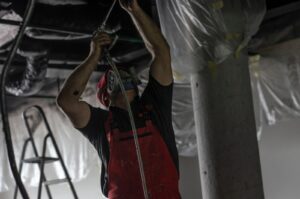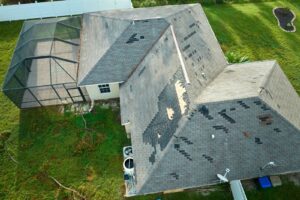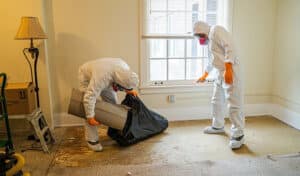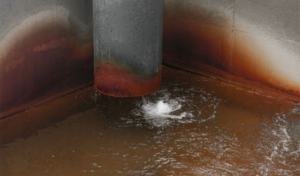You’ll want to fix mold the moment you notice it in your home. As you probably know, mold, in all its forms, is dangerous for your health and not something you want to breathe in or be exposed to.
Because of this, having mold in your home is many tenants’ worst nightmare. It can cause health issues and eventually damage the very structure of your home, rendering it unsafe to inhabit. No one wants that!
But there’s an important question to ask. If you’re renting, is it your responsibility to fix it, or is it your landlord’s responsibility? Paying for your own repairs could be an out-of-pocket expense that you’re not responsible for, but it could be essential to staying healthy in your home, regardless of who is responsible for it.
Today’s blog explains a landlord’s responsibility when it comes to fixing mold in a tenant’s home. Keep reading to learn everything you need to know.
A Landlord’s Legal Responsibilities
First and foremost, you will want to know whether your landlord is legally responsible for fixing mold in your home. The answer is that it depends on where you live.
In Utah, landlords are legally required to fix mold if it exists or if the tenant reports mold in their home. Landlords are even responsible for mold that they don’t know exists. Of course, you must alert the landlord to the mold once you’ve spotted it.
The law further backs tenants up. Utah Landlord Tenant Laws state that the tenant has the right to live in a safe, clean place and to have issues with their home resolved promptly.
The only exception is if a clause in your lease exempts the landlord from fixing mold. In that case, it’s your responsibility to remove the mold. Read your lease carefully to see if your landlord is responsible for it. No mention of mold in your lease? The landlord should still be responsible for fixing mold.
But what happens if your landlord doesn’t fulfill their legal responsibilities? What if they don’t fix the mold?
In that case, your landlord could be held liable for damage to your home or any illness that you may contract from the mold. However, to hold your landlord liable, you must provide proof of the mold, evidence that your landlord failed to have it removed, and proof that your health issues are from the mold.
Documentation is key to proving liability and holding your landlord accountable. Get a doctor’s note. Take photos of the mold. Screenshot communications between you and your landlord.
The Importance of Acting Quickly
We can’t express enough how important it is to take care of mold as quickly as possible. You and your landlord will need to collaborate to ensure the mold is removed in a timely manner.
This could involve giving your landlord permission to enter the premises when you’re not home or being there to meet the mold removal company when they come to clean the mold.
Regardless of how it turns out, it’s essential to work together to fix the mold.
So, if your landlord says they’ll take care of it, but time passes, and you take care of it, they may still be liable. Just because they eventually fixed it doesn’t mean they aren’t liable.
If caught in the first 24 hours, the damaging effects of mold can be minimized. You can likely salvage personal belongings and repair items in your home instead of replacing them. Those first 24 hours are absolutely crucial. It’s worth canceling plans and masking up to remove mold from your home.
Why? Because mold spreads like crazy. So, if your landlord doesn’t act quickly and you document it, you can likely hold them liable for damage to your home or health. If you have to hire a company to remove the mold from your home, you can likely have that money reimbursed from your landlord. Again, document everything!
Suing Your Landlord
So, does holding your landlord accountable involve suing them? That depends on how bad the mold is. If it’s enough to cause serious health issues, you may have a case against your landlord. This is where you’d want to consult an attorney. With the details of your case, the attorney will be able to advise you appropriately.
Again, documenting the mold, communicating with your landlord, and proof of their failure to fix the mold is key for liability.
If you win the lawsuit against your landlord, you could be entitled to damages for lost property value, pain and suffering, and, if applicable, medical bills and lost wages.
Breaking Your Lease
Another question many tenants have is whether they can break their lease. Moving to a safer, cleaner residence is the solution for many people.
But what about the lease you’re in?
Do you have to continue paying rent to an irresponsible landlord?
Most people can’t afford to pay two leases, putting them in a tight spot.
There’s a good chance your landlord will let you out of your lease if they know they’ve failed to fulfill their responsibilities. They will want to avoid legal issues.
But if your landlord refuses to let you out of your lease, you can petition the courts to be legally released from your lease. You’ll likely be released from the lease agreement if you have documented evidence of your landlord’s failure to fulfill their responsibilities.
Restoremasters
Whether you’re anxious to fix mold in your home or you’re researching information for the future, you should keep Restoremasters in mind.
With over 100 years of combined experience, Restoremasters is equipped to fix any kind of damage to your home – mold, water, flood, smoke, and fire. That’s not to mention emergency services or vandalism clean-up.
So, whether you have an emergency and need help right now, or you’re finding information for the future, save our number to your contacts. You can call us at 801.948.2478 or contact us through our website. Trust Restoremasters to restore your home!

